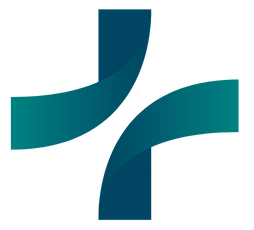Introduction
Compliance in medical billing and coding is of prime importance in ensuring the ethics and integrity of the healthcare system. The spotlight on ethics in the healthcare business has partly been due to the crisis in confidence about online websites and a lack of public trust. Furthermore, a complex healthcare organizational environment where administrations are required to juggle a ‘multitude of competing regulatory obligations and interests’ has provided fertile ground for ethical dilemmas. The trend is evident in the growing concern over the inappropriate conduct of coding and billing and raising claim denial and rejection issues.
That is why medical coding and billing effort should fully comply with the guideline of regulatory authority because ethical problems will eventually lead the health professional and healthcare business to potential or immediate legal troubles. Ethical issues also contribute to losing goodwill and public image and ultimately reduce business profitability. Thus why, a process is required for strict adherence to regulatory guidelines to protect the patients, payers, and healthcare providers. The article will discuss the role of compliance in medical billing and coding.
Accuracy and integrity compliance
Compliance in medical billing and coding is how to make moral choices applied when pursuing various business practices. It does not mean that all ethical decisions are clear-cut. There is always a presence of significant breaches; consequences can be disastrous. In business, integrity, and ethics standers are based on objectivity, honesty, commitment, and impartiality. Compliance with the regulatory authority regulations tends the medical billing and coding professionals to present the information accurately, except that information comprises the business’s financial information in an independent report.
Compliance with Patient security and privacy
You as a coder and must maintain your compliance with HIPAA. It might be because, as a coder, you have access to both patient medical data and personal information. It has become your responsibility to guard patient information as you must safeguard your own. Otherwise, you will consider the culprit for violating HIPAA. Consequently, you may be subject to steep fines and, in some cases, go to prison. So, the protection of patient information not only helps to maintain the trust between payers, patient, and healthcare providers but also help you protect yourself from potential legal penalties.
Compliance with Government regulations
Compliance in medical billing and coding process entails following the relevant state and federal law. Government healthcare programs like Medicaid and Medicare, as well as other insurance entities, have made an outstanding contribution to establishing these laws. Non-compliance to these regulatory laws could lead to severe consequences, audits, or even exclusion from government healthcare programs.
Compliance with third-party rules
Certified medical coders analyse medical records and extract an accurate medical code for billable procedures. The rule that medical coders must follow while abstracting the code is that all submitted procedures must be part of medical documents, not just heading. That is why we always avoid submitting those codes that are only implied or not documented by medical necessity. Otherwise, you will have to confront issues like delays in reimbursement and an exponential increase in claim denial and rejection.
Compliance as a commitment to quality care
Maintenance to compliance with medical billing demonstrates practice commitment to providing quality patient care. Accurate coding and billing practices reflect healthcare providers are committed to ethical standards. It not only helps to avoid the negative effects of non-compliance but also contributes to establishing a successful and well-known practice.
Vital practices to ensure ethics
Following are the vital ethical practices that could help you to ensure ethics in medical billing and coding.
Continuous education and training
Medical codes undergo continuous changes, variations, and frequent addition of new regulations. During the Pandemic, a large number of unique codes have been added. That is why medical coding differs from such practices that you can do in a vacuum. To ensure ethical practices, you must prepare for continuous education and training. Make yourself updated with laws, rules, guidelines, and regulations in the healthcare industry to ensure compliance in medical billing and coding.
Audits and monitoring
Regular internal and external audits must be conducted for a robust compliance program. These audits will help to uncover the shortcomings in documentation, coding errors, billing processes, relevant law and regulation knowledge, and like kickback-Act and False Claim Act.
Maintenance of ethical and legal standers
It is essential to maintain high legal and ethical standards. It includes adherence of medical billers and coders with HIPAA, avoiding up-coding, down-coding, or unbundling, and ensuring patients’ privacy.
Through documentation
Medical documentation should be thorough and accurate. Medical records should be complete and support the medical appropriateness and necessity of bill and medical professional. Documentation errors could lead to severe consequences like claim rejection, denial, audit, and even potential legal action.
Conclusion
In short, in compliance in medical billing and coding as stewards of the people’s interest, healthcare companies and their employees have a responsibility to act in a fair and unbiased manner that be loyal to the patients by putting the public interest before business profit, and fulfils duties of competency, integrity, accountability, and transparency. It will contribute to increasing trust and reduce the risk of fraud.
FAQs
How do you define compliance in medical billing and coding?
Billing and coding compliance is the role of each entity in the healthcare delivery system. The part of compliance is to monitor billing and coding strategies and audit medical records to ensure the information in medical claims is accurate.
Why is ethics important in medical billing, and what happens if coders ignore it?
A high level of accuracy is an essential standard of professionalism for medical billers and coders. If medical billers and coders fail to adhere to these standards, it will lead to fraud or even compromise the safety of the patients. In case these coders and billers wrongly coded for the medical diagnosis and treatment. It could also contribute to making a medical coder or biller found guilty of fraud and has to face serious legal charges for participating in inaccurate billing practices.
Is there any benefit of a compliance program?
Yes, a compliance program has a lot of benefits for patients, payers, and healthcare professionals. It ensures the security of patient data. It helps healthcare professionals to avoid serious consequences. These included delayed reimbursement, claim rejection, claim denial, or even in some cases, protection from criminal charges. It assists the payers in the steady flow of claim reimbursement processes.
How can healthcare professionals promote compliance culture?
Healthcare professionals can promote a healthy culture of compliance by adopting transparency, accountability, and ethics at their workplace. They should pay high value to staff training and encourage the staff to report any compliance issue at their workplace openly. They should also proactively support and facilitate the implementation of compliance procedures and policies.
How do education and training help to improve medical coding and billing compliance?
In medical billing and coding, continuous staff education and training are of prime importance for ensuring compliance at the workplace. It helps the medical billing and coding staff remain updated with the latest coding-related regulatory changes and coding guidelines, ensuring integrity and ethical behaviour.
For Invaluable Insights and Daily Updates, Follow Us on LinkedIn or join us on Quora.

